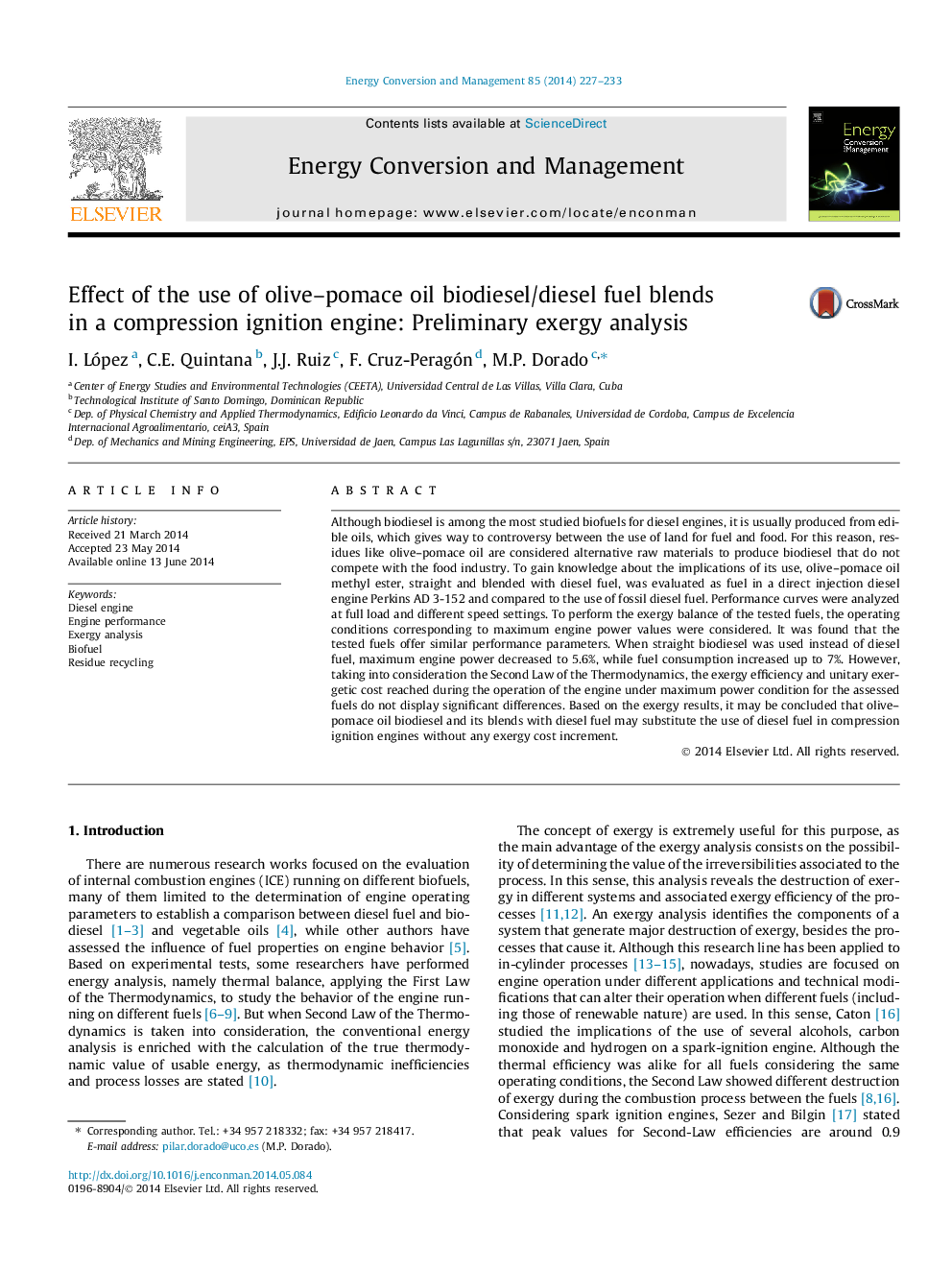| Article ID | Journal | Published Year | Pages | File Type |
|---|---|---|---|---|
| 7164913 | Energy Conversion and Management | 2014 | 7 Pages |
Abstract
Although biodiesel is among the most studied biofuels for diesel engines, it is usually produced from edible oils, which gives way to controversy between the use of land for fuel and food. For this reason, residues like olive-pomace oil are considered alternative raw materials to produce biodiesel that do not compete with the food industry. To gain knowledge about the implications of its use, olive-pomace oil methyl ester, straight and blended with diesel fuel, was evaluated as fuel in a direct injection diesel engine Perkins AD 3-152 and compared to the use of fossil diesel fuel. Performance curves were analyzed at full load and different speed settings. To perform the exergy balance of the tested fuels, the operating conditions corresponding to maximum engine power values were considered. It was found that the tested fuels offer similar performance parameters. When straight biodiesel was used instead of diesel fuel, maximum engine power decreased to 5.6%, while fuel consumption increased up to 7%. However, taking into consideration the Second Law of the Thermodynamics, the exergy efficiency and unitary exergetic cost reached during the operation of the engine under maximum power condition for the assessed fuels do not display significant differences. Based on the exergy results, it may be concluded that olive-pomace oil biodiesel and its blends with diesel fuel may substitute the use of diesel fuel in compression ignition engines without any exergy cost increment.
Related Topics
Physical Sciences and Engineering
Energy
Energy (General)
Authors
I. López, C.E. Quintana, J.J. Ruiz, F. Cruz-Peragón, M.P. Dorado,
